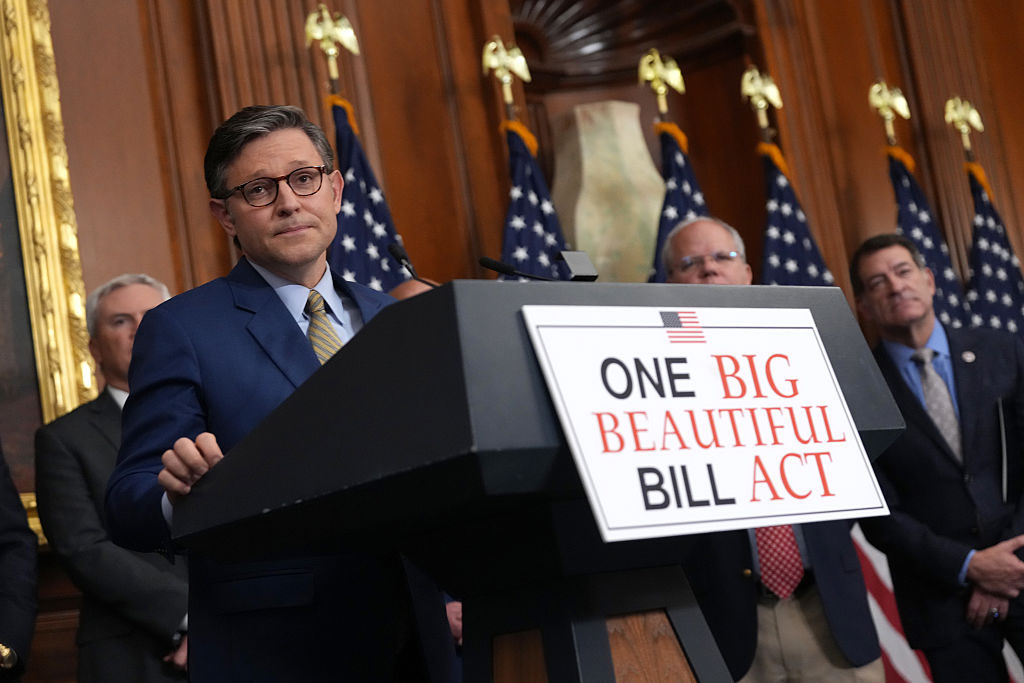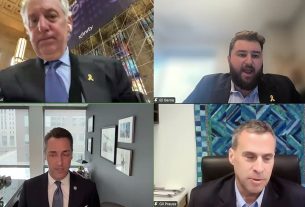President Trump’s proposed “Big, Beautiful Bill” has faced strong opposition from Democratic leaders and most major media outlets. Critics have portrayed it as extreme and harmful. But a closer look shows that not everyone on the left sees it that way. In fact, some Democrats—even those who don’t support the bill overall—are willing to admit that certain parts deserve serious discussion.
Dakarai Larriett, a Democratic candidate for U.S. Senate in Alabama, is one of those voices. Larriett has made it clear that he does not support the bill as a whole. But unlike many in his party, he’s not calling for it to be dismissed outright. “If we refuse to talk about the few parts that might help people,” Larriett said, “we’re doing more harm than good.”
That kind of honest, balanced view isn’t often heard in today’s political climate. Some Americans, including some Democrats, may be more open to parts of the bill than the media have led people to believe.
One section of the bill focuses on improving how federal agencies use taxpayer money. It proposes detailed audits of every department to reduce waste, eliminate overlap, and modernize outdated programs. These efforts don’t cut benefits. Instead, they aim to make sure public funds are being spent responsibly.
Larriett highlighted the need for better oversight, pointing to incidents like a $67 million fighter jet crashing into the ocean. “We keep arguing about tax brackets,” he said. “But nobody’s asking why billions of dollars disappear every year in defense spending and bloated contracts. Audits shouldn’t be controversial.”
Another part of the bill proposes cuts to Medicaid, raising concerns from Democrats about how these changes might affect people who still qualify. Larriett agrees that this section needs clearer language. “Right now, the eligibility standards aren’t well defined,” he said. “I support stopping fraud, but we need to be careful. You can’t just make broad cuts and hope it affects the right people.”
Instead of rejecting the proposal entirely, Larriett is calling for revisions—not removal. That’s a key distinction that many of the bill’s harshest critics ignore.
Perhaps the most promising section of the bill focuses on education. It offers a national tax credit for donations to Scholarship Granting Organizations (SGOs), which give private school scholarships to students from low- and middle-income families. These types of programs already exist in states like Florida, where organizations like Step Up for Students serve over 120,000 children, many of whom are Black or Hispanic.
Larriett sees this section as especially important. “If you’re a student stuck in a failing school just because of your ZIP code, a scholarship like this can change your life,” he said. “Wealthier families already have options. These programs give working families options too.”
The bill also expands 529 education savings accounts so that families can use them for things like SAT prep, tutoring, homeschooling supplies and job training—not just college tuition. These changes make education savings more flexible and help close the opportunity gap between high- and low-income families.
Finally, the bill invests in workforce development. It increases support for apprenticeships, creates partnerships between high schools and local businesses, and removes restrictions that keep Pell Grants from being used for short-term job training programs. The bill recognizes that not every student wants, or needs, a four-year degree.
Larriett agreed. “Skilled trades are in demand, but students don’t hear about them,” he said. “This bill supports practical paths—like HVAC, coding, or automotive repair—that lead to real jobs.”
“This bill supports practical paths—like HVAC, coding, or automotive repair—that lead to real jobs.”
Despite strong reactions from many in Washington, the “Big, Beautiful Bill” includes several ideas that could bring both parties to the table—if they’re willing to be honest. The bill is not perfect. Some sections need to be changed. Others may need to be removed entirely. But dismissing everything in the bill just because it came from Trump is short-sighted.
As Larriett put it, “If we can’t even say a single policy idea might be worth looking at just because of who proposed it, then we’re not solving problems—we’re just playing games. And the American people are the ones losing.”
Most voters aren’t looking for political drama. They want results. Even if this bill doesn’t pass in full, parts of it—on education, healthcare waste, and federal efficiency—could form the basis for future bipartisan reforms. But only if lawmakers are willing to talk—and to listen.
Gregory Lyakhov is the youngest nationally syndicated columnist in the U.S., with work regularly featured in the New York Post, Wall Street Journal, The Hill, and more.




